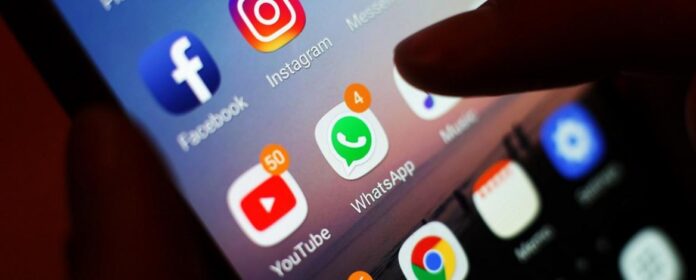How to protect your social media accounts
TECHDIGEST – Humans are social beings, and since time immemorial we have sought ways to deepen our connection with others. Since the advent of social media, this connection has grown as a lot of our conversations have gone online.
Social media is now a part of our social fabric. According to Mcafee, over 56 per cent of the global population are social media users to some degree or other.
With all the sharing, conversing, and information passing between family and friends going on, social media can form a distinct digital extension of ourselves — hence making it important to know how you can protect your social media accounts from hacks and attacks.
Asides from the number of people who are on social media, there is also the amount of time we spend on it.
According to a report on the World Economic Forum site, people spend an average of 2 hours and 27 minutes per day on social media, which might differ widely by country.
In emerging markets like Nigeria, people spend more time on social media largely because of a younger population driving growth. The study stated that Nigerians spend the longest time per day connected to social media sites, with an average user signed in for 4 hours and 7 minutes. This is more than the average user in the United States who spends over two hours on social media a day.
READ ALSO: How to use Metatrader 4’s Advanced Trading Tools
According to a report from datareportal.com, there were 109.2 million Internet users in Nigeria as of January 2022. The report further revealed that there were 32.90 million social media users in Nigeria as of January 2022.
Social media, like Twitter, plays an important role in Nigeria. In 2020, the Nigerian government banned Twitter because of its growing socio-political prominence.
Given how much we enjoy and rely on social media, it is imperative we improve our social media settings and habits. Whether we are using Facebook, Instagram, TikTok, or whatnot, here are things we can do that can help keep us safe and secure out there:
Set strong, unique passwords
Passwords are like gates. The stronger the gate, the harder it is for thieves to break in. Password is the first step in protecting your account.
Set a strong and unique password across all your accounts to form a primary line of defence. This can be hard with all the accounts we have floating around, juggling dozens of strong and unique passwords can feel like a task—thus the temptation to use (and re-use) simpler passwords.
Hackers love this because one password can be the key to several accounts. Instead, try a password manager that can create those passwords for you and safely store them as well. Comprehensive security software will include one.
Go private
Social media platforms like Facebook, Instagram, and others give you the option of making your profile and posts visible to friends only. Choosing this setting keeps the broader internet from seeing what you are doing, saying, and posting, which can help protect your privacy.
Reject friend requests from strangers
Be critical of the invitations you receive and accept. Out-and-out strangers could be more than just a stranger, they could be fake accounts designed to gather information on users for purposes of cybercrime, or they can be an account designed to spread false information. There are plenty of them too. In fact, in the third quarter of 2021, Facebook took action on 1.8 billion fake accounts.
Think twice before checking in
Nothing says ‘there is nobody at home right now’ like most of you on vacation or sharing your location while you are out on the town. In effect, such posts announce your whereabouts to a broad audience of followers (even a global audience, if you are not posting privately, as called out above).
The Internet is forever
It is a famous saying for a reason. Whether your profile is set to private or if you are using an app with disappearing messages and posts (like Snapchat), what you post can indeed be saved and shared again. It is as simple as taking a screenshot. If you do not want it out there, forever or otherwise, simply do not post it.
READ ALSO: Google doodle marks Nigeria’s elections
Watch out for phishing scams
We are increasingly accustomed to warnings about phishing emails, yet phishing attacks happen plenty on social media. The same rules apply. Don’t follow any links you get from strangers by way of instant or direct messengers. And keep your personal information close. Do not pass out your email, address, or other info as well. Even those so-called quiz posts and websites can be ruses designed to steal bits and pieces of personal info that can be used as the basis of an attack.
Also keep an eye out for scams of all kinds
Sadly, social media can also be a place where people pull a fast one. Get-rich-quick schemes, romance cons, and all kinds of imposters can set up shop in ads, posts, and even direct messages—typically designed to separate you from your personal information, money, or both. This is an entire topic in itself, and you can learn plenty more about quizzes and other identity theft scams to avoid on social media.
Review your tags
Some platforms such as Facebook allow users to review posts that are tagged with their profile names. Check your account settings and give yourself the highest degree of control over how and where your tags are used by others. This will help keep you aware of where you’re being mentioned by others and in what way.
Protect yourself and your devices
Security software can protect you from clicking on malicious links while on social media while steering you clear of other threats like viruses, ransomware, and phishing attacks. It can look out for you as well, by protecting your privacy and monitoring your email, SSN, bank accounts, credit cards, and other personal information. With identity theft a rather commonplace occurrence today, security software is really a must.
















